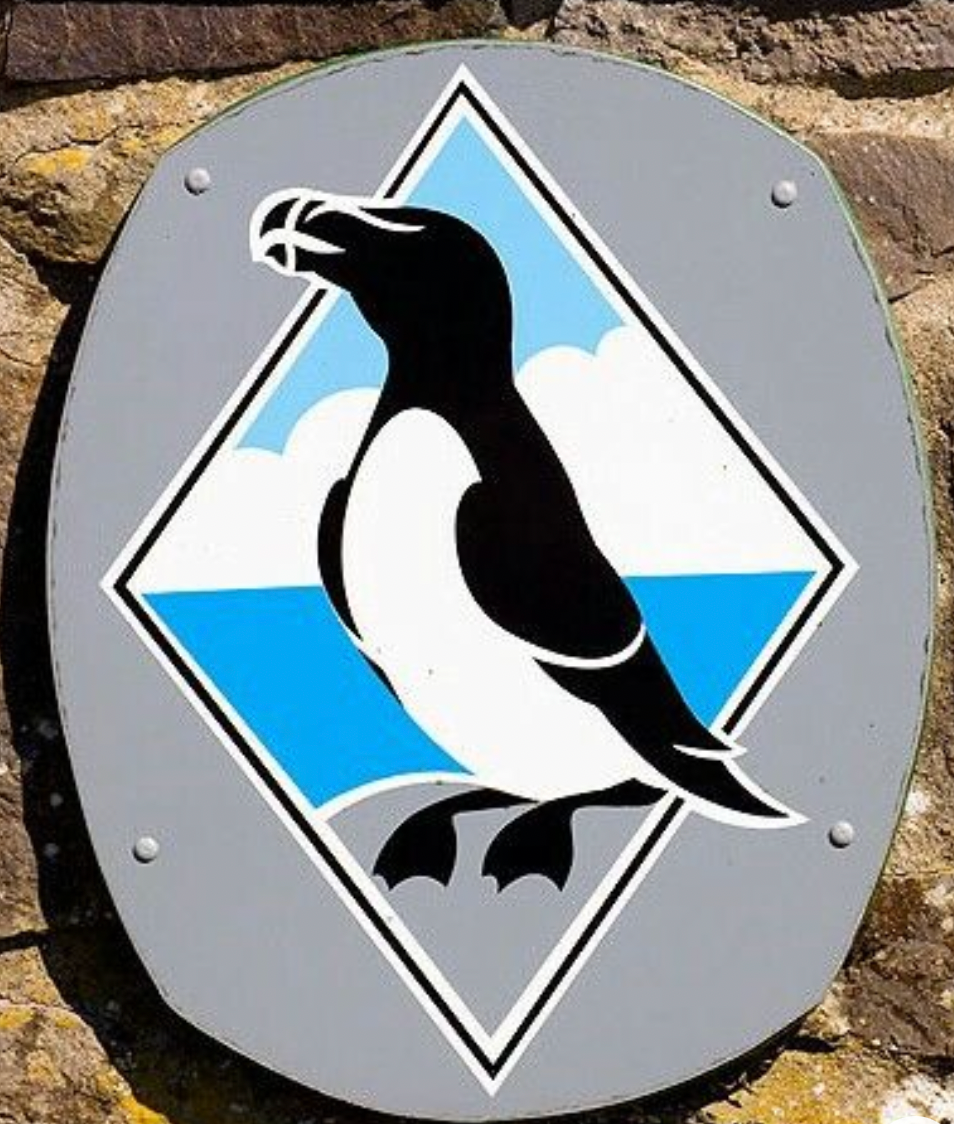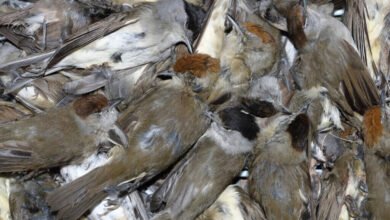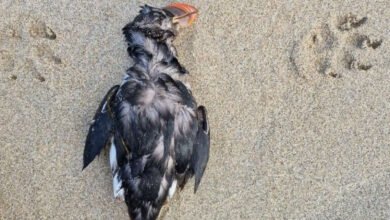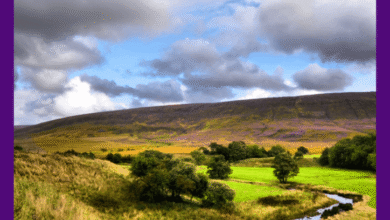
The decision of the Pembrokeshire Coast National Park Authority (PCNPA) to grant planning permission for an outdoor centre at Moylegrove, Pembrokeshire was deemed unlawful and quashed in a judgment handed down by Justice Eyre yesterday. This was as a result of a legal challenge brought by Wild Justice on which I worked whilst I was a director of Wild Justice and so it is a matter of great personal satisfaction as these legal victories are hard to win and take a lot of effort from many people (see Wild Justice’s blog – click here).
I can now delete hundreds of emails about this case going back to 2023. The area of concern was of disturbance to wildlife in the Pembrokeshire Coast National Park through increased recreational activity such as coasteering – see this Guest Blog from Gill Lewis here from August 2024. Here is a description of the long process and a short discussion of what it means.
The process of a judicial review
Wild Justice intervened in October 2024 with a legal letter pointing out that, amongst other things, the Habitats Regulation Assessment carried out as part of the planning process was badly flawed and that relying on it could open up any planning decision to legal challenge. Permission for planning consent was given and in late October Wild Justice sent a Pre-action Protocol letter (PAP letter) to PCNPA telling them that Wild Justice believed they had acted unlawfully and asking them what they thought. They said they didn’t think they had done anything wrong – a decision which will have cost the PCNPA a lot of money and an embarrassing loss in court.
The next stage was to apply for permission for a judicial review and the considerable paperwork for that was produced by Wild Justice’s legal colleagues at Leigh Day and barristers Barney McCay and David Wolfe KC. I have 44 emails in my PCNPA folder from a six-day period in late November as we completed the legal arguments and a witness statement from Wild Justice. We alleged five grounds of illegality that we asked the court to consider.

In February, we (Wild justice, I was still a director then) were given permission to go to court for a full judicial review hearing on two of the five grounds. We appealed on the other three grounds (although the legal term is ‘seeking renewal’) and that appeal was heard in Cardiff by Justice Eyre in March (actually on the day of the Cheltenham Gold Cup as I remember pulling over to listen to the race on my drive home from Cardiff). We were only in court for a few minutes that day as Justice Eyre, who presided over the full judicial review, gave permission on the remaining three grounds of challenge very quickly.

And so we, Julia Erikson from Leigh Day, Barney and David (the barristers), Lucy Lapwing from Wild Justice, me (now as a very interested member of the public), a Razorbill, a Grey Seal and quite a gaggle of locals headed off to Haverfordwest Crown Court on two very hot days of 18 and 19 June to appear in front of the Hon Justice Eyre as he decided the legal challenge. And, of course, the plaintiff, the PCNPA, were present with their lawyers and, not surprisingly, the applicant for planning permission was there too. He didn’t look very happy throughout and that was probably because, as lay persons, both he and I could tell that the case was going the way I hoped but not the way he hoped.
Sitting in court listening to the legal arguments has its moments but there are long periods when none of it makes much sense and it is a bit dull – interrupted by exciting bits. The judge is impartial and is considering the legal merits of the arguments from both sides and so, based on my experience of having seen a few of these now, doesn’t give anything away. It’s not like a football match or a game of tennis where the score is apparent through ‘play’ it’s more like a diving competition or gymnastics where you see the play, can form your own impression of the skill of the participants but then have to wait weeks or months for the scores. I came away very hopeful, and two and a half months later that hope was shown to be justified.
Implications
- the planning approval was deemed to have been made unlawfully and is quashed (I love the word quashed – it conjures up an image of a squidged, flattened, wet mass of decision). The applicant will have to re-apply if he wishes, at some expense of time and money. He won’t be pleased and may feel that PCNPA has let him down. He won’t be thrilled by the local campaign or the bravery of Wild Justice either. He will know that people will be all over any renewed application.
- the PCNPA has been shown to have acted unlawfully – that’s not a good look for a public body and it needs to review its internal procedures. I’d say, it needs to remember that it has a legal duty to protect the environment and it isn’t there to promote economic activity from potentially damaging activities without giving them full and proper scrutiny. My view is that PCNPA needs to remember whom it serves – all people not just developers. And it will have to be scrupulously careful if this application is renewed and be far more assiduous in reviewing other planning applications with this blot on its record.
- Wild Justice comes out of this very well. No statutory conservation body or large national wildlife charity stood up for wildlife at this site and supported the local campaigners because they had a good case. But Wild Justice did – at considerable expense (although winning means that that will be less than if the case had been lost). Did Natural Resources Wales do a good job in protecting the wildlife of this SAC, SPA and SSSI? Not in my view. Did the National Trust, the RSPB or the Wildlife Trusts put themselves out for wildlife here? No they didn’t. The RSPB specifically didn’t think this case was a high enough priority to stir themselves – see here.
- Leigh Day (in this case it was the first time we worked with Julia Eriksen who was brilliant) and the barristers were just fantastic and they know I think that because I’ve told them many times and specifically in relation to this case.
- The local campaigners were just brilliant. Gill Lewis and friends mounted an excellent campaign which brought these issues of coastal disturbance to the attention of many. They did a great job of making the sort of noise that elevated their case above others in gaining attention. With Wild Justice taking the lead the locals didn’t have to engineer a legal challenge themselves which would have been daunting and expensive. The legal system is not that easy to understand when you first engage with it – it has its own jargon (like any other form of business), funny clothes, strange ways of working and appears to be a very odd world until you get more accustomed to it when it just seems like quite an odd world. But it was great sitting in court with them in Cardiff (when we could go to the pub afterwards) and in Haverfordwest (from which the journey home is a long one) and feeling their passion. They deserve all our thanks and they have mine.
PS it won’t have escaped the notice of some readers that this case was about increasing public access and its impact on wildlife.
[registration_form]
Source link




